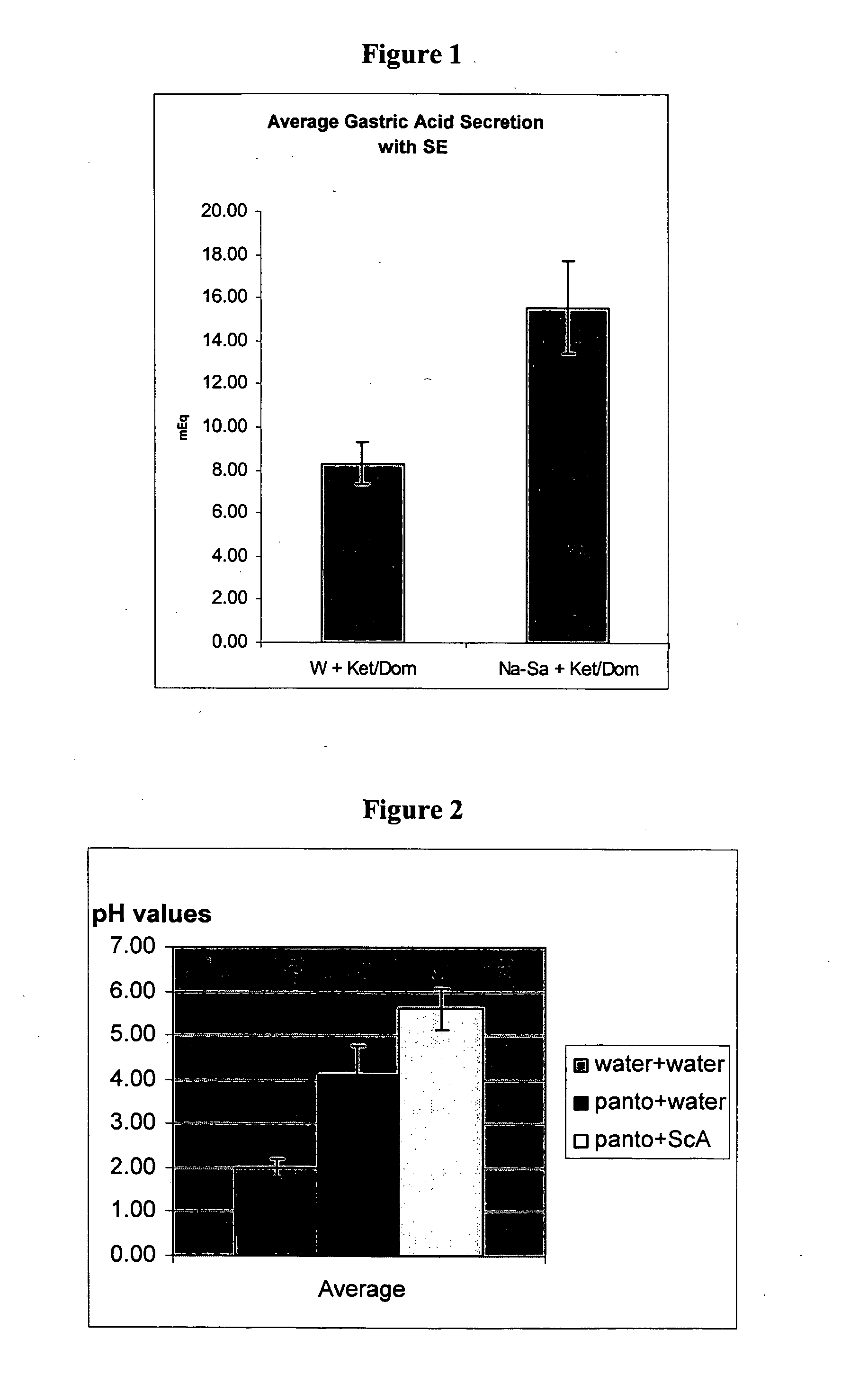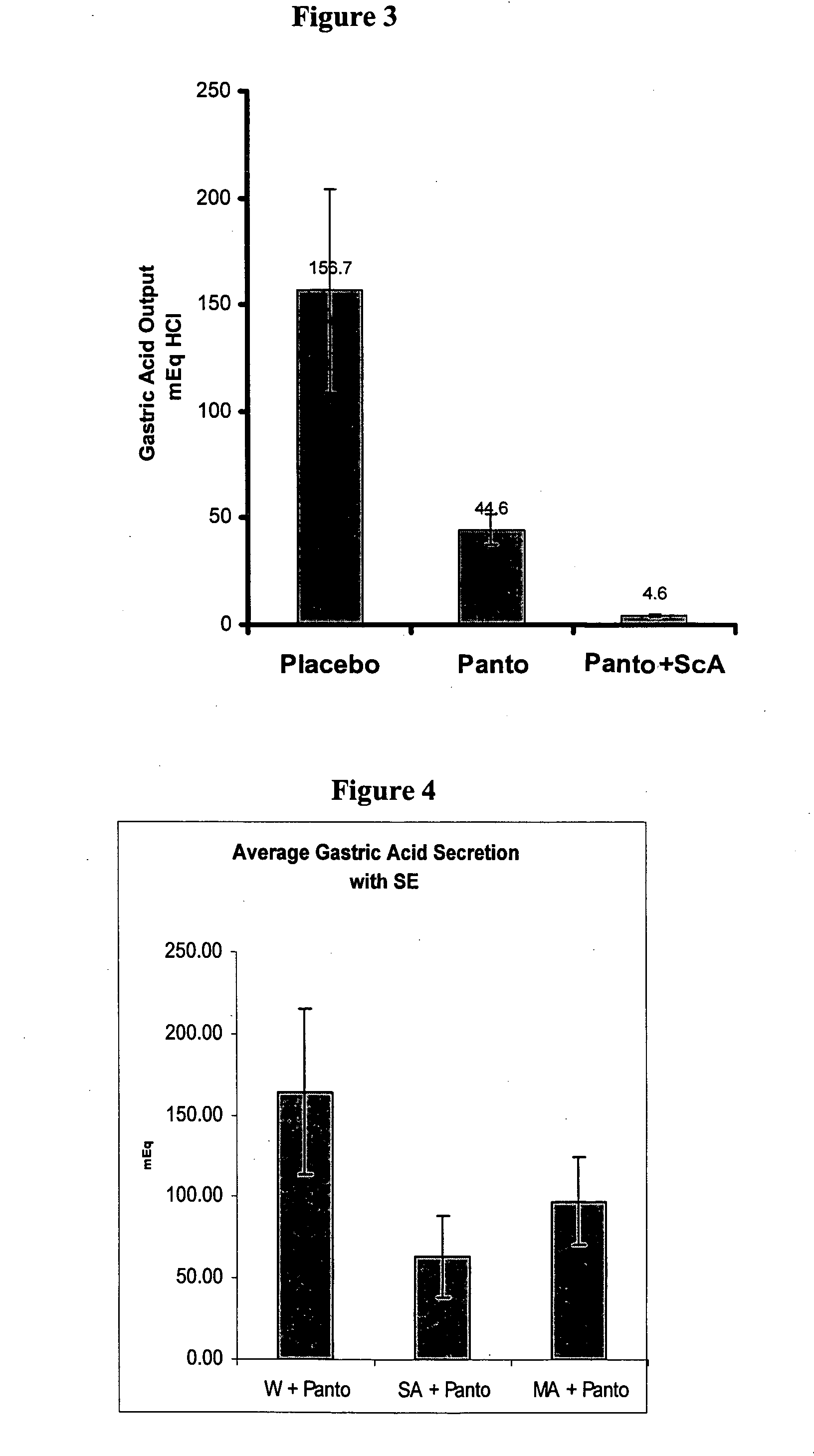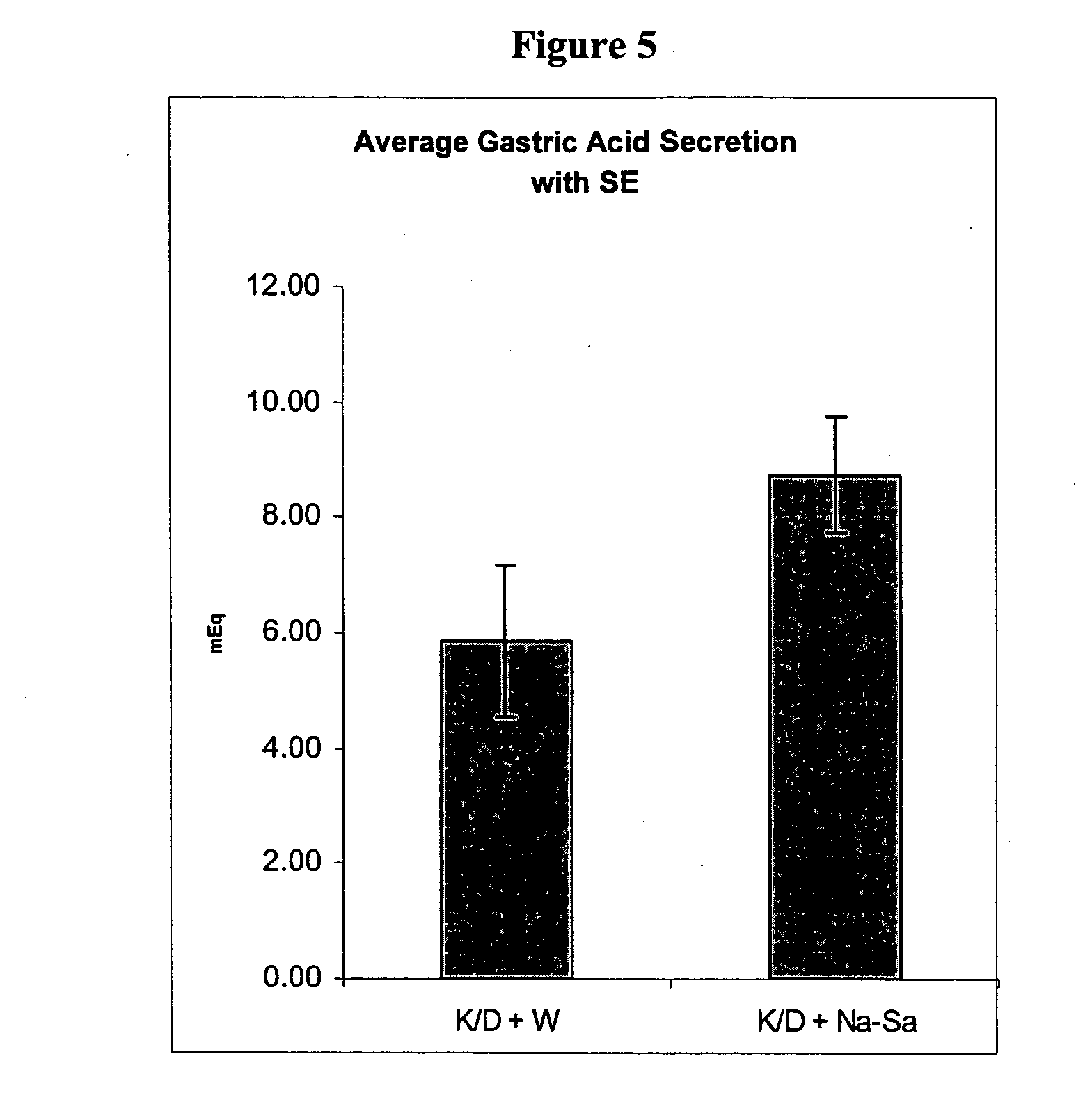Compositions and methods for inhibiting gastric acid secretion
- Summary
- Abstract
- Description
- Claims
- Application Information
AI Technical Summary
Benefits of technology
Problems solved by technology
Method used
Image
Examples
example 1
Stimulation of Gastric Acid Secretion Following Oral Administration of Sodium Succinate in Rats
[0071] Rats were administered (per os) with 15 mg / kg of sodium succinate using gavage. 30 minutes later the rats were anesthetized with ketamine / domitor and the pylorus was ligated. Following additional 60 min, gastric juice was collected from the gastric lumen. Acid output was determined by titration with NaOH. Total acid output expressed in mEq HCl was calculated by multiplying the sample volume by the acid concentration. Results are expressed as means ±SEM of 12 animals from each experimental group. As demonstrated in FIG. 1, oral administration of sodium succinate significantly enhanced gastric acid secretion in pylorus-ligated rats.
example 2
Succinic Acid is Capable of Enhancing the Inhibitory Effect of Pantoprazole on Gastric Acid Secretion
[0072] To study the effect of succinic acid on the inhibition of gastric acid secretion by pantoprazole, an experimental model of conscious pylorus-ligated rats was used. This experimental model permits the analysis of the effect of drugs on gastric acid secretion in conscious animals and avoids the effect of anesthesia on gastric acid secretion. Pantoprazole alone (10 mg / ml) and in combination with succinic acid (15 mg / ml) were administered by oral gavage. Water was administered as a placebo. 15 minutes later the animals were anesthetized using anesthetic gas machine for a short period (5 minutes) that is sufficient to perform the pylorus ligation procedure and to close the abdomen. The animals were then placed back into its cage for additional 90 min after which the animals were sacrificed. The ligature was placed around the esophagus, the stomach removed and gastric content was c...
example 3
Oral Formulations Comprising a Proton Pump Inhibitor (PPI) and Succinic Acid
[0075] Hard Gelatin Capsules
[0076] Hard gelatin capsules may contain a mixed granules population of succinic acid (ScA) and PPI. ScA granules are in an immediate release or delayed release formulation and PPI is formulated as enteric-coated granules or time-dependent release coating (delayed release). Granules may be packed into a hard gelatin capsule in an amount corresponding to 40 mg PPI and 200 mg ScA per capsule.
A) Immediate Release ScA Formulation:
[0077] 40 mg enteric-coated (Eudragit) or time-dependent release coated (HPMC) [0078] PPI granules [0079] 200 mg ScA granules [0080] diluent
B) Delayed Release ScA Formulation: [0081] 40 mg enteric-coated or time-dependent release coated PPI granules 200 mg ScA [0082] granules (HPMC coated) [0083] diluent
[0084] For the delayed release ScA formulation, ScA solution is sprayed on inert beads in a fluid bed apparatus. After drying, the ScA beads are furth...
PUM
| Property | Measurement | Unit |
|---|---|---|
| Mass | aaaaa | aaaaa |
| Ratio | aaaaa | aaaaa |
| Acidity | aaaaa | aaaaa |
Abstract
Description
Claims
Application Information
 Login to View More
Login to View More - R&D
- Intellectual Property
- Life Sciences
- Materials
- Tech Scout
- Unparalleled Data Quality
- Higher Quality Content
- 60% Fewer Hallucinations
Browse by: Latest US Patents, China's latest patents, Technical Efficacy Thesaurus, Application Domain, Technology Topic, Popular Technical Reports.
© 2025 PatSnap. All rights reserved.Legal|Privacy policy|Modern Slavery Act Transparency Statement|Sitemap|About US| Contact US: help@patsnap.com



